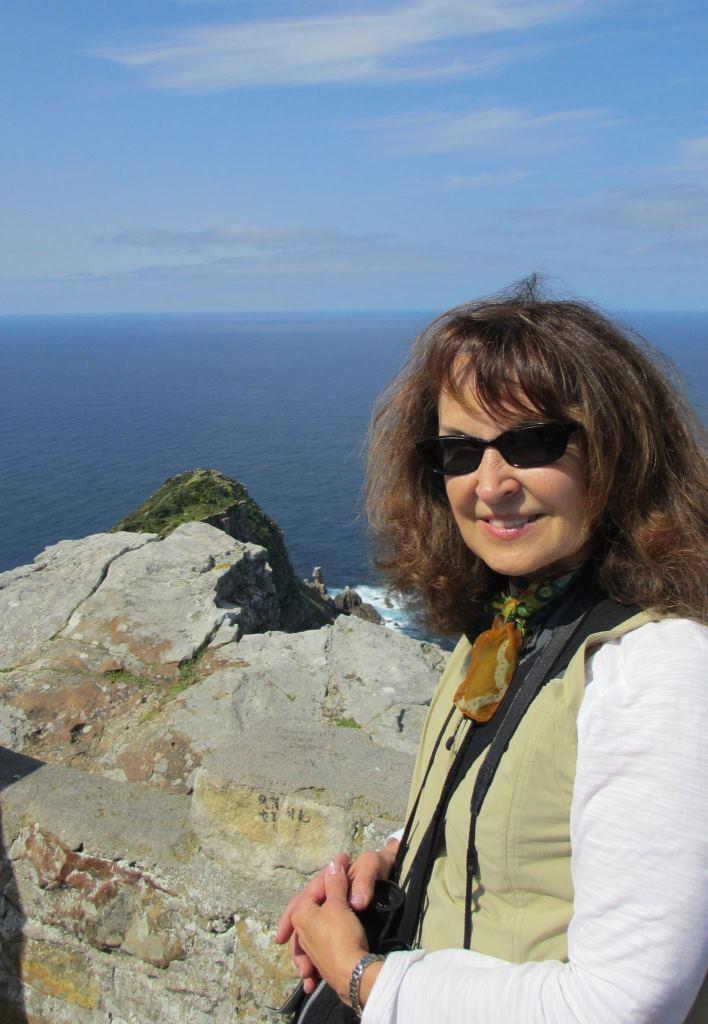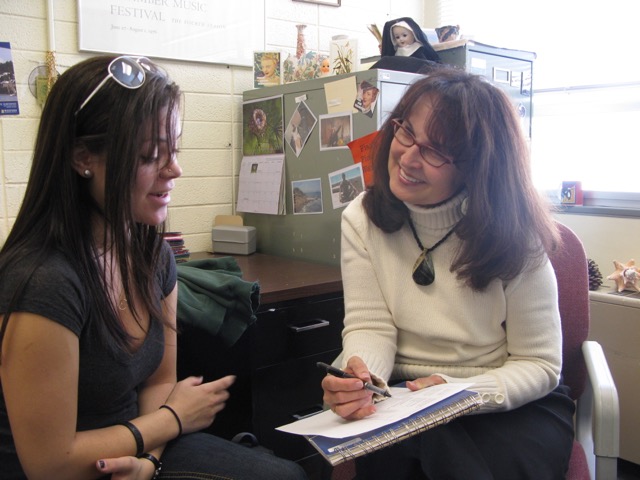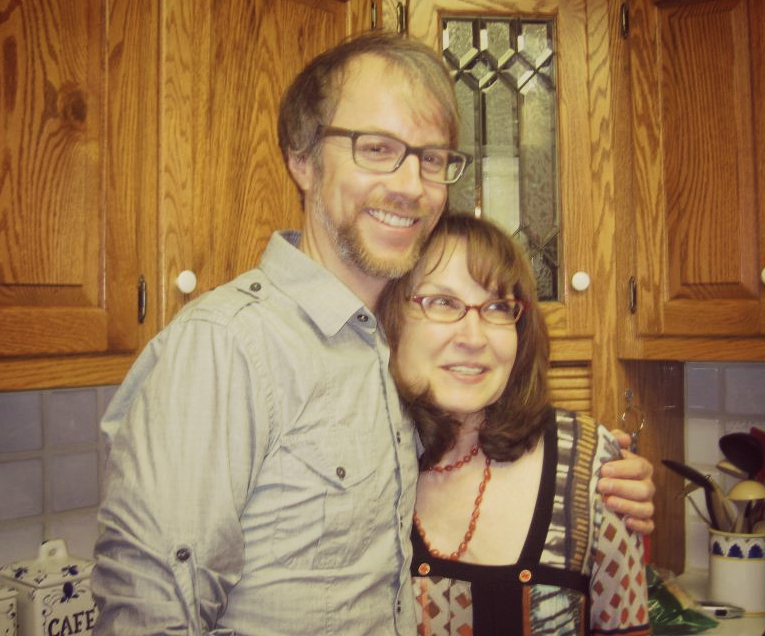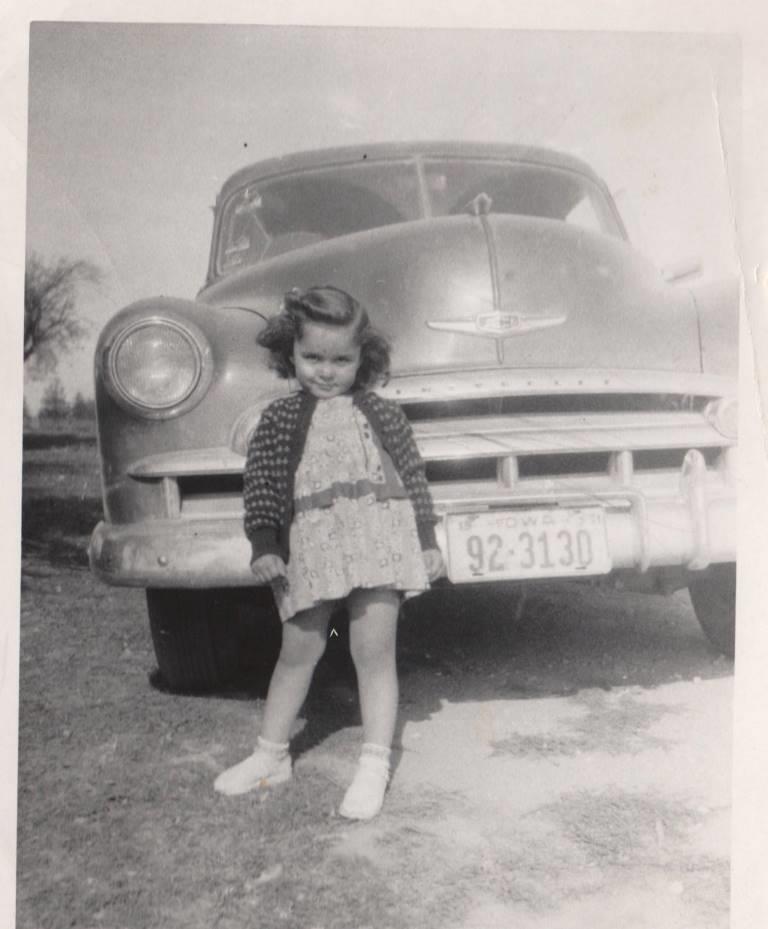The upcoming issue of the College of Liberal Arts enewsletter, where this post will be featured, is a special issue in which all the stories feature development-focused content that showcases the impact of our CLA donors. We were asked to contribute a story “about the impact of a scholarship on a student’s time here at CSU, a faculty member who was able to complete a research project due to a donor gift, or a profile piece on a major donor to your department.” After giving it only a little thought, our obvious choice was to write about Deanna Ludwin — a two time alumna, 16 year faculty member, and a dear friend of the English department. It was a joy working with Deanna to put this profile together.
Embracing One’s Community through Giving

Deanna Ludwin is nothing if not invested in CSU. She first entered the community by way of the English department as a graduate student.
Soon after my husband, Gary, and I made our home in Fort Collins, in 1978, the English Department became an invaluable part of my life. In 1980, I began taking graduate-level classes so I could renew my secondary teaching certificate and return to teaching once our younger son was in school. Gary had joined The Fort Collins Women’s Clinic and, as one of only three physicians in the practice, often worked 70- or 80-hour weeks, so I was the primary care giver for our two children. Graduate school — with its accomplished and encouraging faculty and bright and lively students — provided me the intellectual stimulation I sought and the support I needed to complete an MA in Literature.
Before completing her MA in 1988, Deanna started teaching at Poudre High School but continued to attend lectures, colloquia, and readings at CSU even after completing her degree. She took a creative writing class, and soon was back in her beloved English Department, earning her MFA in Poetry in 1995.
Less than a year later, Professors Pattie Cowell and Richard Henze invited Deanna to join the faculty as coordinator of the English Department Internship Program and the Creative Writing Teaching Program for graduate students teaching introductory creative writing courses. She also taught undergraduate creative writing (all levels of poetry and intermediate fiction) and Introduction to Poetry, as well as a graduate course in grant proposal writing. Deanna co-directed the Greyrock Institute, a summer program that later became The Greyrock Writers’ Festival, and taught a graduate course to secondary teachers.
Throughout my time at CSU, I was warmly accepted as a student and a colleague. I’d found a home in the English Department, nurtured by fine intellects and generous hearts. So it was only natural that I would want to encourage others in their intellectual and artistic pursuits.

Deanna felt fortunate as a student, having access to the programs she wanted right in her hometown, not having to deal with moving or paying out-of-state tuition. “But during my time as a student, then faculty member, I encountered students who were struggling to balance academics and economics.” Accustomed to paying tuition for their two sons, Deanna and Gary decided to put that money toward helping other students once their sons completed their degrees.
In 2003, Deanna and Gary established the Tremblay-Crow Fellowship for graduate students in the Creative Writing program. In 2005, they established the Smith-Schamberger Fellowship for literature students. Both merit-based fellowships honor professors whose talents, inspiration, and tireless efforts contributed to the many successes of these programs and their students, and both are intended for graduate students who do not have teaching assistantships in the English department; fellowship monies are deposited directly toward tuition. Although she is not involved with the selection of the recipients, Deanna often receives letters from students telling her how the fellowship monies have provided them with much needed assistance. Deanna and Gary also established the Crow-Tremblay Alumni Reading Series, which supports the visits of MFA program graduates who have recently published books. “Over the years, the amount of our contributions has varied; some years we are able to contribute more than other years. On occasion, others’ contributions have supplemented ours, but the fellowships are in dire need of additional support.”
During her time at CSU, Deanna was a valued member of the English community. As an MFA candidate, Deanna was awarded the John Clark Pratt Award “for excellence in creativity, scholarship, and service.” As a faculty member, she received an Excellence in Teaching Award from the College of Liberal Arts (2003), a Best Teacher Award from the Alumni Connection and Student Alumni Connection (2006), and two Golden Apple awards from the Organization of Graduate Student Writers. Deanna felt appreciated, “which certainly has something to do with my desire to contribute to the department.” Deanna continues to be important to the English community, joining us for readings, retirements, and other department events—when she is in town.
I retired after sixteen years, ready to enjoy more time with family members (most of whom live in Iowa, including my parents, ages 95 and 90; and Gary and I now have four grandchildren, ages three to fourteen). In addition, I’m traveling every chance I get (we recently returned from Cuba) and am working on an investigative memoir. I continue to serve on the Colorado Review Advisory Board and to host potlucks for visiting writers. Of course, I still count many former colleagues and students among my dearest friends.

Deanna spent her early years on a farm in Iowa, “in a family for whom giving was natural — though we never referred to it as ‘giving.’ If a need existed, someone responded to that need.” Deanna is passionate about the arts, including the arts of research and writing, whether it’s termed creative or critical.

According to my mother, I was writing before I learned to read. My mother read to me every day — and my father read me the “funny papers” on Sundays. I was enamored with the pleasure and power of language and, after I learned to read myself, at age five, I delighted in my interactions with other lives, other places, other cultures. My parents owned few books, but we had an abundance of children’s books and visited our small-town library often. I wanted to create such magic myself, of course, and spent hours making little rhymes and stories. For serious students of language, literature, and culture, these creative impulses persist.
Students who pursue English degrees are well aware of the ways their studies deepen self-reflection and connect them to others. Engagement in the arts promotes involvement in cultures other than our own, too, and if I can add to these scholarly pursuits in any way, I feel compelled to do so. Such riches belong to all.
Deanna is also the founder of Books for Humanity, a project in which volunteers deliver a bookcase and reference library to every existing Fort Collins Habitat for Humanity family. She’s also on the steering committee for Fort Collins Habitat’s Women Build and several English Department faculty members have contributed toward the building of two houses for single-parent families.
Deanna is a wonderful example of someone who has invested effort, money, and heart into her community, and the benefit has both been hers and ours. When asked why she gives, Deanna responded,
Why do I give? I wish I could provide an enlightening, instructive answer, based on recent theories and studies, but giving seems to me simply a way of participating in — no, embracing — one’s community. To do so, people offer whatever they’re able to contribute: time, talent, energy, ideas, perspectives, money. Each does what she can to nurture the health of the whole.
Thank you, Deanna! We appreciate you and what you give, so much.
Colorado State University’s purpose is to ensure students can realize their dreams and impact the world through access to innovative and relevant academic programming, an incomparable student experience, extraordinary faculty and staff, research and new knowledge discovery to solve global challenges, and state-of-the-art working and learning environments. Find out more about how you can help.